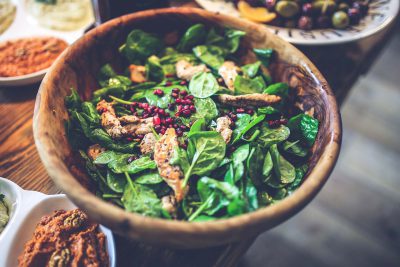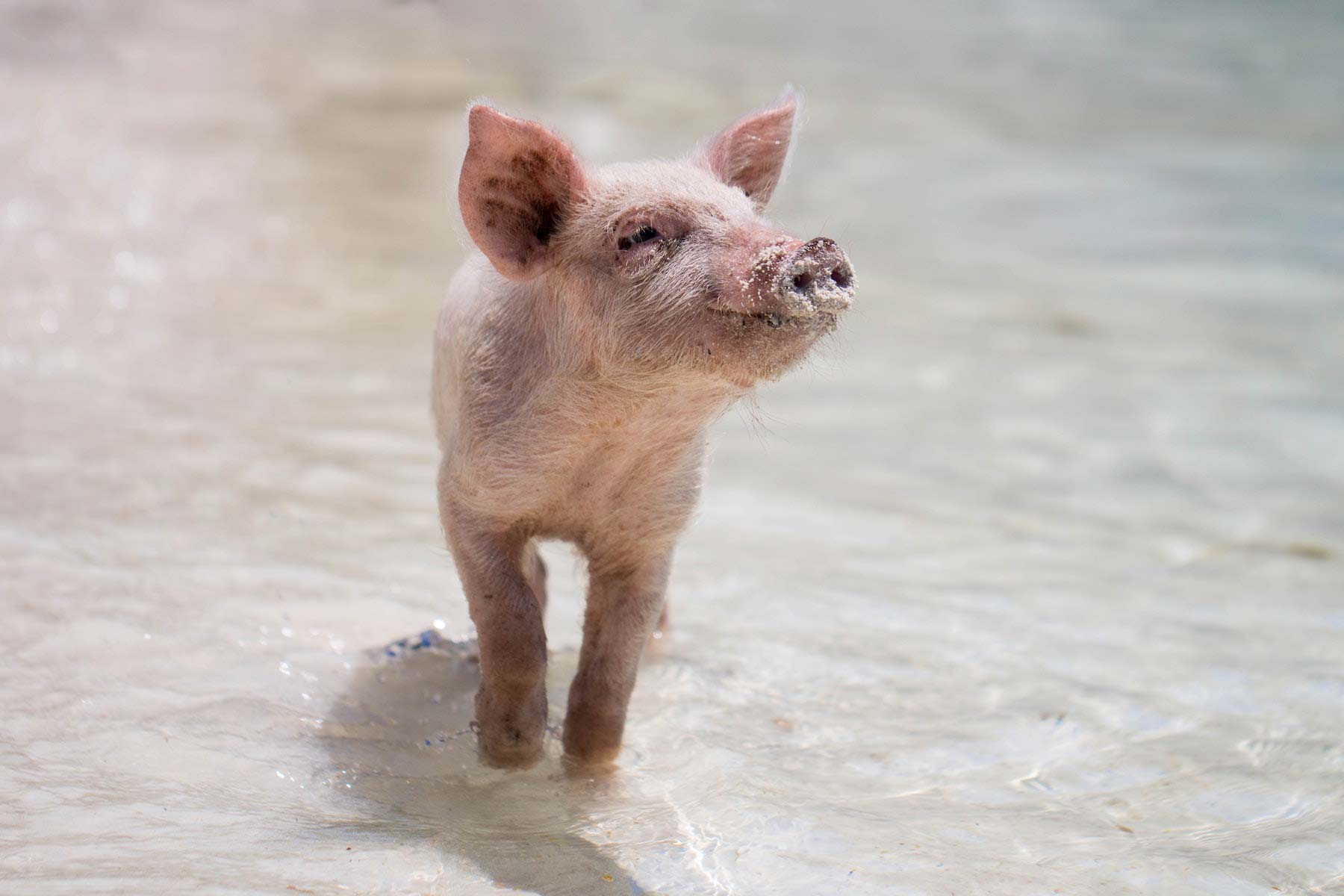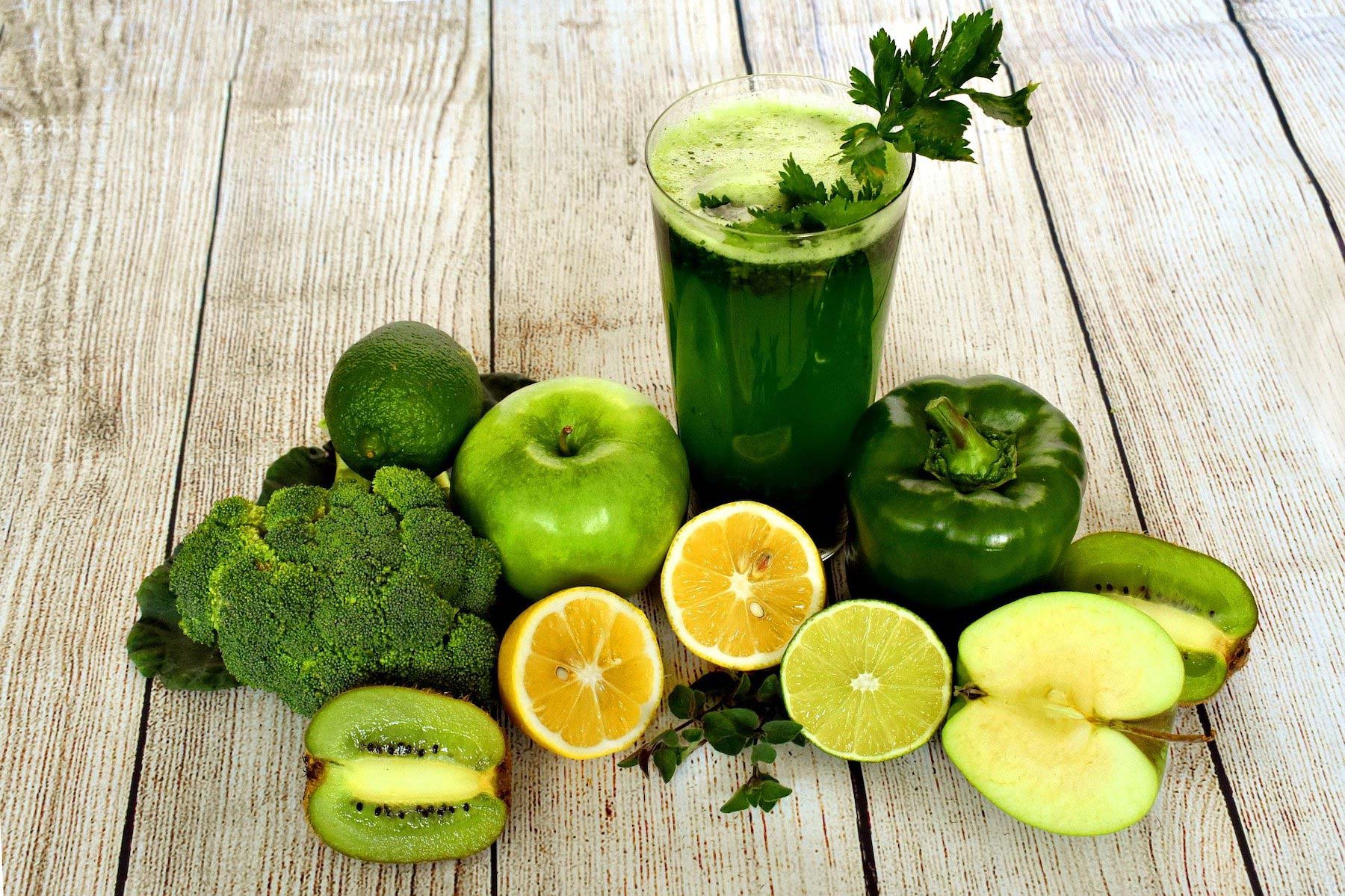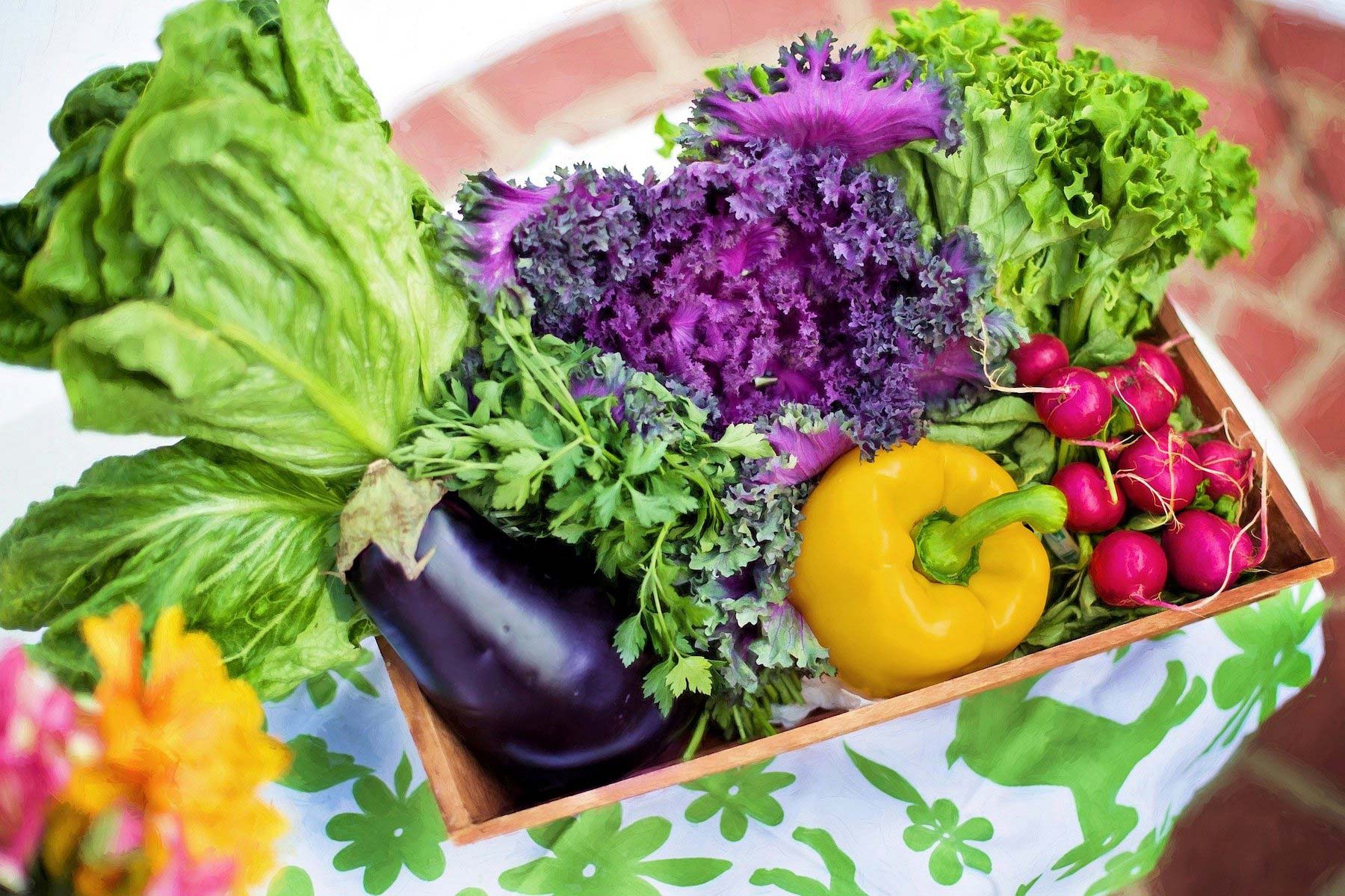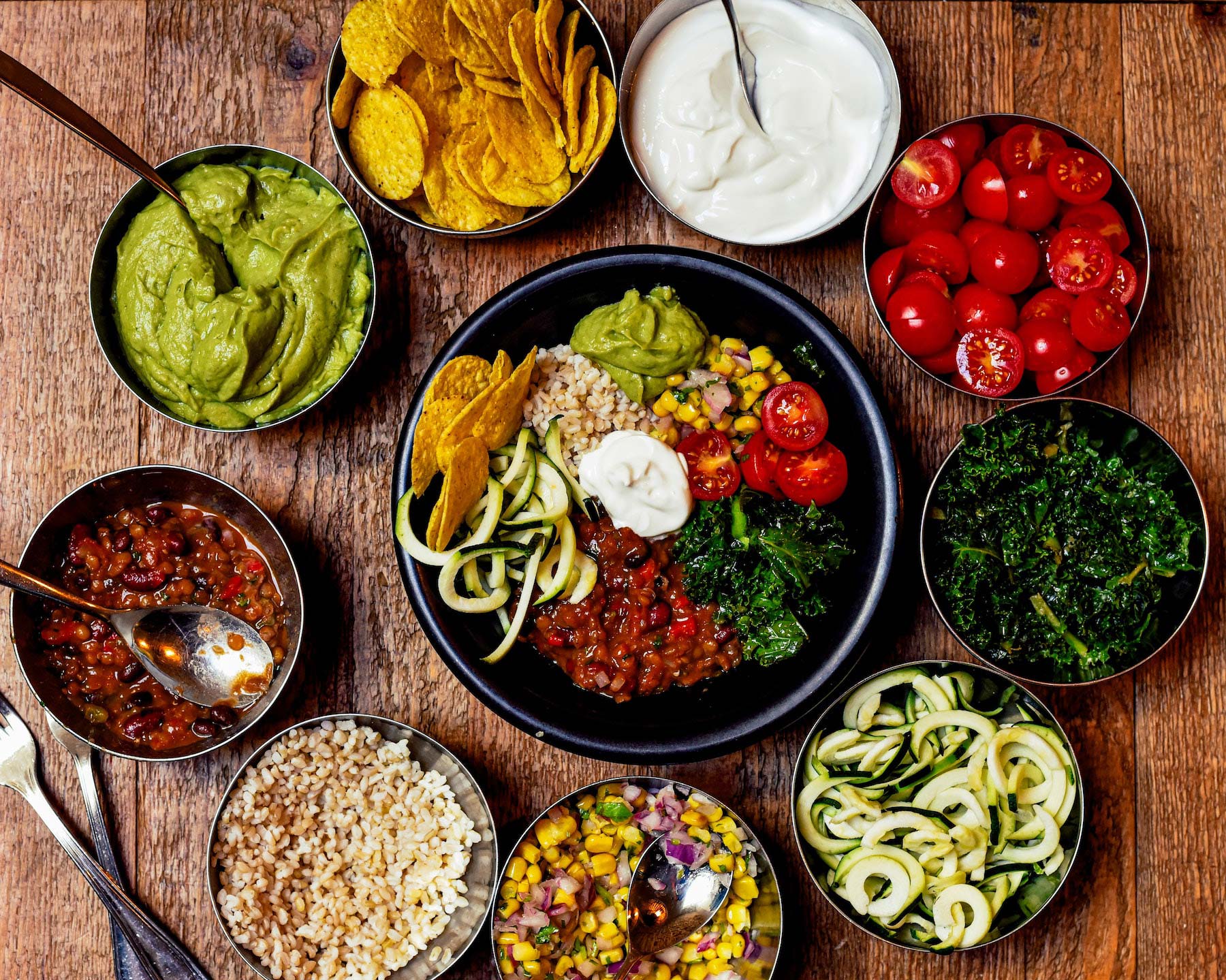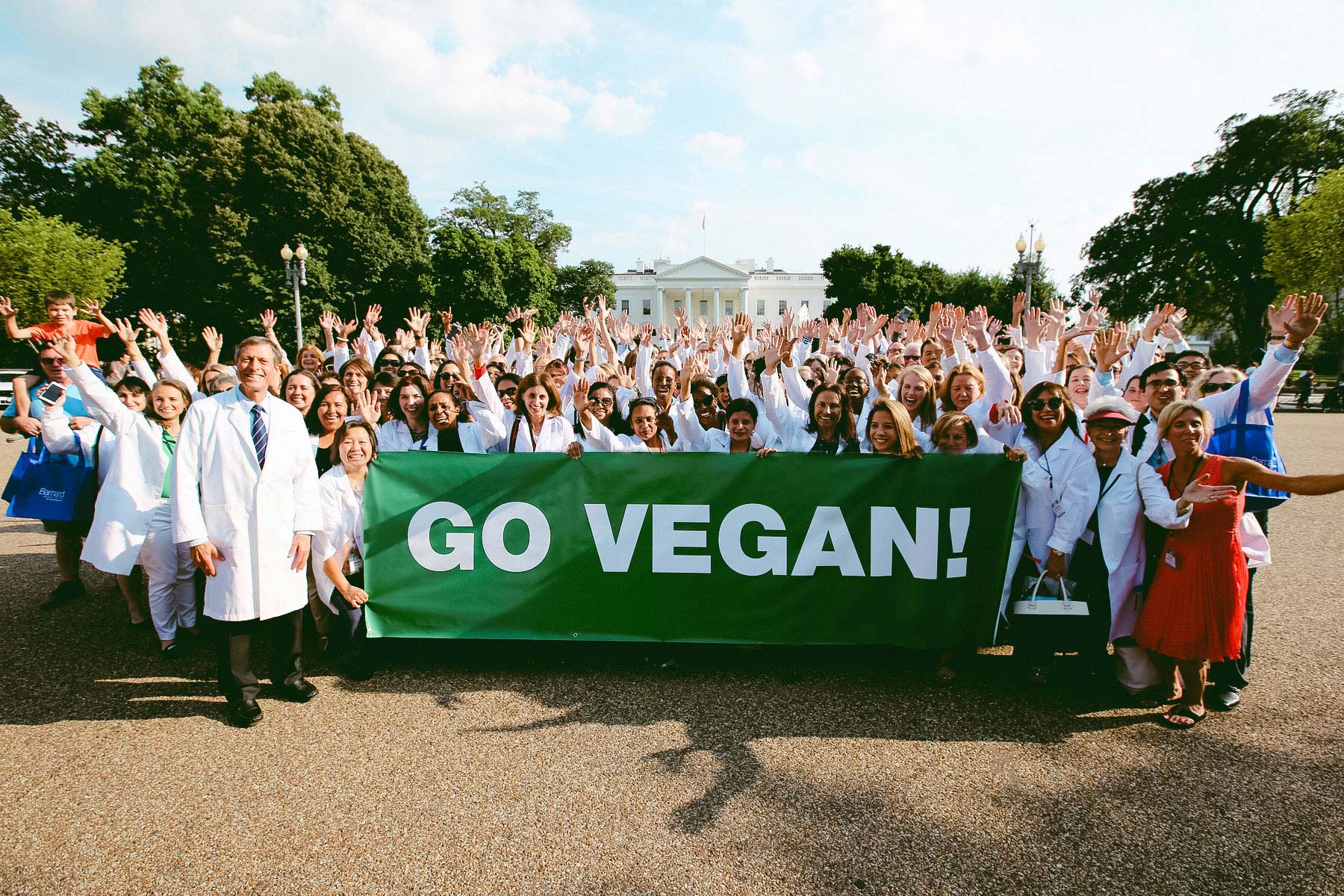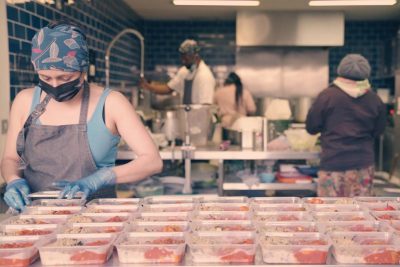Countless people who wish to lose weight have found they can do so sustainably and healthily through choosing plant-based whole foods. Perhaps the reason this works so well for so many people is that it isn’t really a diet at all. It’s a change in eating habits, and it can be motivated by a host of important reasons, which make sticking to it a lot easier. And when we are able to choose healthy plant foods—and really enjoy eating them—we may start to notice a wealth of positive benefits, both in our bodies and our minds. Here is our best advice for achieving great health through a vegan diet, and a grocery list to get you started!
What Is A Vegan Diet?
A vegan diet is one that contains foods that are not made from—or derived from —animals. It consists of fruits, vegetables, grains, tubers, legumes, herbs, salads, nuts, and seeds but this way of eating is much more than the sum of its parts. Yes, these plants can be eaten raw or cooked quite simply, or they can be turned into family favorites like lasagna and pizza, or turned into convenience foods like deep fried ‘chicken’ or indulgent cakes. All of these are vegan, but of course, not all are healthy.
What is a Whole Food Plant-Based Diet?
This prioritizes whole grains over refined grains, and fresh produce over processed foods. It limits sugar and, of course, contains no animal products at all. This may sound limiting but we think you would be surprised at the range of foods available. Pasta, burgers, burritos, curries and thousands more everyday dishes can be made from whole foods. Lots of people find that by starting with one small change, such as choosing brown rice instead of white, or soy milk instead of milk taken from cows, they can start along the path to a whole foods plant-based diet, building in good habits as they go.
The Pros
There are many good reasons to adopt a vegan diet. It requires no factory farms or slaughterhouses and so spares billions of animals appalling suffering. It is kinder to the planet, as it needs less land and therefore removes one of the biggest drivers of deforestation. It reduces water and air pollution, and it emits far fewer climate-changing emissions than animal products. For all these reasons and more, Oxford University researchers conclude that being vegan is the “single biggest thing we can do” to help the planet.
Plus, a vegan diet is associated with many important health benefits including reduced rates of heart disease, hypertension, type 2 diabetes, and some cancers. Pretty impressive, hey?
The Cons
Like any dietary or lifestyle change, it can take a little time to adjust, and those early weeks require some label-reading, internet searching, and planning. But within a very short space of time—usually no more than three weeks—great new habits begin to oust the bad old ones. Many people find positive changes come really fast, including better sleep, clearer skin, and improved digestion.
Can Being Vegan Help With Weight Loss?
It can.
A study published in the Journal of the American College of Nutrition compared a whole food plant-based diet with the Mediterranean diet that is so commonly thought of as being optimal for weight loss. The study found that within 16 weeks:
- Participants lost an average of 6 kilograms (or about 13 pounds) on the vegan diet, compared with no mean change on the Mediterranean diet
- Participants lost 3.4 kg (about 7.5 pounds) more fat mass on the vegan diet
- The vegan diet decreased total and LDL cholesterol levels by 18.7 mg/dL and 15.3 mg/dL, respectively, while there were no significant cholesterol changes on the Mediterranean diet
How Can Vegans Lose Weight Faster?
We don’t recommend fast weight loss, and in fact, we understand that dieting is a predictor of future weight gain. Besides, neither weight nor BMI accurately represent our health. For all these reasons, we prefer to focus on health and how we feel, instead of numbers on a set of scales. But for those who wish to lose some weight, there are a few ideas that can help.
Understanding the Concept of Calorie Density
Calorie density is a measure of how many calories are in a pound of food and can be used to guide our food choices if sustainable and healthful weight loss is our aim. Vegetables have fewer calories per pound while meat, cheese, and oil are all towards the top end of the scale. Says Jeff Novick, MS, RD: “This common sense approach to sound nutrition allows for lifelong weight management without hunger; more food for fewer calories, and is easy to understand and follow.”
The reason this approach works so well is that most people eat the same weight of food every day. That means they feel sated without the added calories.
Cutting Out Added Oil
Oil has the highest calorie density of any food. Adding oil to a meal always raises the overall calorie density so we might consider alternative ways to prepare a meal. Instead of roasting potatoes, for example, we could consider baking them. Instead of adding an oil-based dressing to salads, perhaps a squeeze of lemon would work well.
Controlling the Amount of Starch
Not all starchy foods are created equal. Refined carbohydrates have been stripped of much of what makes them so nutritious. If we switch out products made with white flour, for example —such as breads, bagels, pretzels, and pasta —and wherever possible choose the unrefined wholegrain versions, we’ll be doing our health a big favor. Plus, these are more filling, so we require less to feel sated.
Get Into Fiber-Rich Foods
Unrefined carbohydrates tend to be high-fiber foods, and fiber is great for our digestion. It is also associated with a lower risk of heart disease, stroke, type 2 diabetes and bowel cancer. Fiber helps us feel fuller for longer and so reduces snacking. It is found in wholegrain pasta, breakfast cereals, and bread, as well as potato skins, pulses, and vegetables.
Avoiding Caloric Beverages
Sodas, beers, wines, and fruit juices all add significant calories without adding anything meaningful to our diets. You might find that water with a slice of cucumber, lemon or lime, or a handful of fresh mint, can be just as tasty and refreshing.
Cut Out Vegan Convenience Foods
Donuts and fries are not healthy just because they’re vegan but of course we don’t need an expert to tell us this. If we can reduce our reliance on these types of foods, our bodies will thank us for it.
Exercising (or As We Prefer to Call It, Joyful Movement)
One thing that can really help weight loss, according to Sandra Aamodt, author of Why Diets Make Us Fat, is exercise. Now, many of us have a bad relationship with exercise, and associate it with punishment, pain, boredom, or even bullying. No wonder, then, that we are reluctant to go back to it. But forget those old concepts of exercise, and instead think about any movement that brings you joy. What do you love to do? It could be dancing, swimming, wheelchair basketball. It could be a team sport such as rugby or basketball, or you may prefer hiking alone. Perhaps there is something you have always wanted to try, such as kayaking or kung fu or skateboarding. If you enjoy it, you will keep wanting to do it, and that is how we build sustainable and life-changing habits.
How Much Weight Can You Lose On A Vegan Diet?
There is no equation when it comes to weight loss. No one can say: if you do x and y, you will lose a stone in weight. But, in the plant-based diet study cited above, participants did lose an average of 14 pounds over 16 weeks while still eating the same portion sizes as before. Of course, this is an average and some people would have lost less weight, others more. And you are different to all of them.
Here’s a radical thought … how about we put the scales away? Instead, why not start thinking about ways to build more whole plant-based foods into our diet while discovering which forms of movement are for us? If we start to feel better in our bodies and minds—and exercise is brilliant at boosting mood—then the numbers on the scales start to matter so much less. And perhaps that is the best outcome of all.
Frequently Asked Questions
We know you have questions! Let’s start with these …
Will I Feel Hungry?
Whole foods are great at filling us up without the added calories, so we shouldn’t feel any hunger.
Will I Spend Lots Of Money?
You shouldn’t. Research commissioned by Veganuary in the UK found that plant-based meals eaten at home cost around 40 percent less than meat/fish-based meals. A second study by Oxford University found that in high-income countries, a vegan diet was the cheapest way to eat. And it makes sense. Meat and dairy products are very expensive, despite the huge amounts of taxpayer subsidies that farmers receive.
Will I Eat Just Veggies And Fruits?
No! It’s not just plates of salads and fruits. You’ll make fresh soups, smoothies and stews, bean burgers and curries, risottos, falafel, burritos, pancakes, and hundreds of other things you love—all just made plant-based.
Will I Need To Learn How To Cook?
That would be helpful but there are many recipes that require very little culinary skill and that can be made quickly. Search out one-pot meals for simplicity.
Vegan Grocery List For great health
- Vegetables. There are 300,000 edible plants in the world. Load up with as many as you can find! Asparagus, beets, calabrese, daikon, eggplant, fennel, ginger, heart of palm, iceberg lettuce, Jerusalem artichoke, kale, leeks, mangetout, nori, okra, plantain … you get the picture.
- Fruits. And it’s the same with fruits. Instead of reaching for the usual ones that tend to sit uneaten in the fruit bowl, pick up something new. They don’t have to be fresh. Frozen berries make great smoothies, and can be defrosted and teamed with vegan apple pancakes or yogurts.
- Legumes. Anything from fresh French beans to canned garbanzo beans to dried lentils, there is a wealth of tasty, nutritious options to try. They’re great to add to soups, salads, curries and bakes. And don’t forget soy products—soy is a bean which is full of protein and very versatile, Try tofu, tempeh, edamame beans, soy milk, and soy yogurt.
- Grains. Rice is nice, but have you tried couscous, quinoa, freekeh, buckwheat, millet, and farro? And don’t forget oats which make a nutritious and filling breakfast. Plus there are lots of products made from grains like whole grain bread and pasta.
- Herbs and spices are our friends. Full of flavor, they can turn a Monday night super-basic dish into a real crowd-pleaser.
- Vegetable broth. Really adds depth of flavor to dishes.
- Healthy fats. We need some fat in our diets so choose healthy fats like avocados, seeds, nuts and nut butters.
7-day Vegan Diet Plan For Weight Loss
Here is a sample meal plan to inspire you for your first seven days. Remember you can add fresh herbs, spices, toasted seeds, fresh chili, lemon zest, or any other flavors you love to give these dishes some zing.
Monday
Breakfast: Oatmeal with fresh fruit
Lunch: Baked sweet potato with hummus and fresh vegetables
Dinner: Bean burger with salad
Tuesday
Breakfast: Half an avocado on wholegrain toast with tomatoes
Lunch: Garbanzo bean salad, loaded with green leaves, salad vegetables, and lemon zest
Dinner: Roasted cauliflower with garlic and pine nuts, and drizzled in tahini sauce, served with a grain
Wednesday
Breakfast: Vegan apple pancakes with berries
Lunch : Mexican quinoa salad
Dinner : Shepherd’s pie, made with brown lentils and topped with sweet potato mash
Thursday
Breakfast: Oatmeal with fresh fruit
Lunch: Three bean soup with wholegrain bread
Dinner: Falafel with tahini-lime sauce and fresh mixed salad
Friday
Breakfast: Smoothie, using up any fruits and vegetables you have, and a tablespoon of nut butter
Lunch: Wholewheat tortilla packed with mashed black beans (seasoned with cumin, salt, and lime) and arugula
Dinner: Lentil chilli with wholegrain rice
Saturday
Breakfast: Peanut butter and banana on toast
Lunch: Miso soup with tofu and scallions
Dinner: Buddha Bowl—your choice of cooked and raw vegetables, tofu, and grains, with a spicy peanut sauce
Sunday
Breakfast: Tofu scramble made with bell peppers, green onions, tomatoes, and herbs
Lunch: Tomato and red lentil soup
Dinner: Thai green curry with tofu and Asian vegetables
Conclusion
Eating a whole food plant-based diet has been shown to help with healthy and sustainable weight loss, while also reducing the risk of conditions such as cancer, heart disease, and type 2 diabetes.
And it’s not about deprivation! You can enjoy many of your favorite foods made vegan, eat the same portion sizes, save some money and start to feel healthier. It will also reduce your climate and environmental footprints and spare the lives of many animals.
Many people have found the whole food vegan diet to be transformative in their lives. Perhaps it will transform yours, too.
